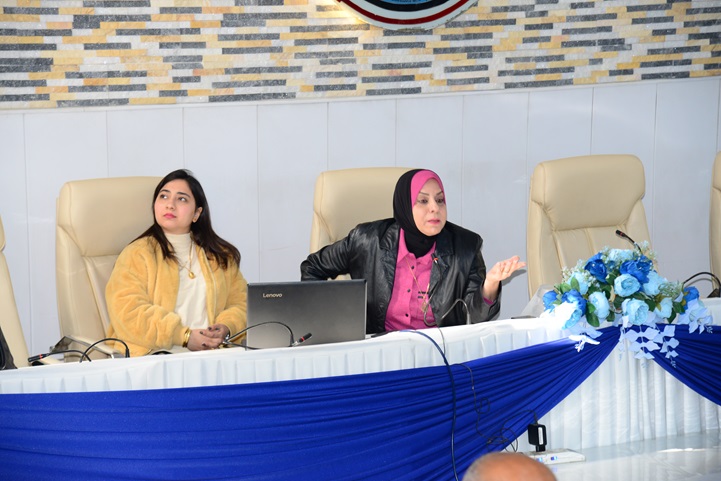The teacher in the team sports branch at the College of Physical Education and Sports Sciences for Girls, University of Baghdad, Prof. Dr. Iqbal Abdul Hussein, a scientific symposium for undergraduate students entitled (How to formulate exam questions according to Bloom’s classification).
She referred to the concept of examination questions as the means available to teachers to measure the extent of change that occurs to their students and determine their levels as a result of the learning process, including the information and knowledge included in the course.
She stressed that there are a set of characteristics that must be taken into account when preparing and formulating questions, the most important of which are stimulating students’ abilities and working to stimulate thinking, criticism and conclusion, and that they be diverse and cover aspects of the academic subject, taking into account individual differences and different levels of students.
She pointed to the objectives of the examination questions, represented by cognitive objectives, which include knowledge and information, emotional objectives such as appreciation and admiration, and psychomotor objectives such as performance and skills, noting at the same time the criteria for selecting examination questions in terms of importance, diversity, flexibility, appropriateness, and keeping pace with global trends.
She also showed the levels of questions according to Bloom’s taxonomy, including thinking, analysis, synthesis, and innovation questions, recalling how to deal with questions in terms of preparing and asking them, time, and grade.
This lecture achieves the fourth goal of the sustainable development goals, which is quality education.
